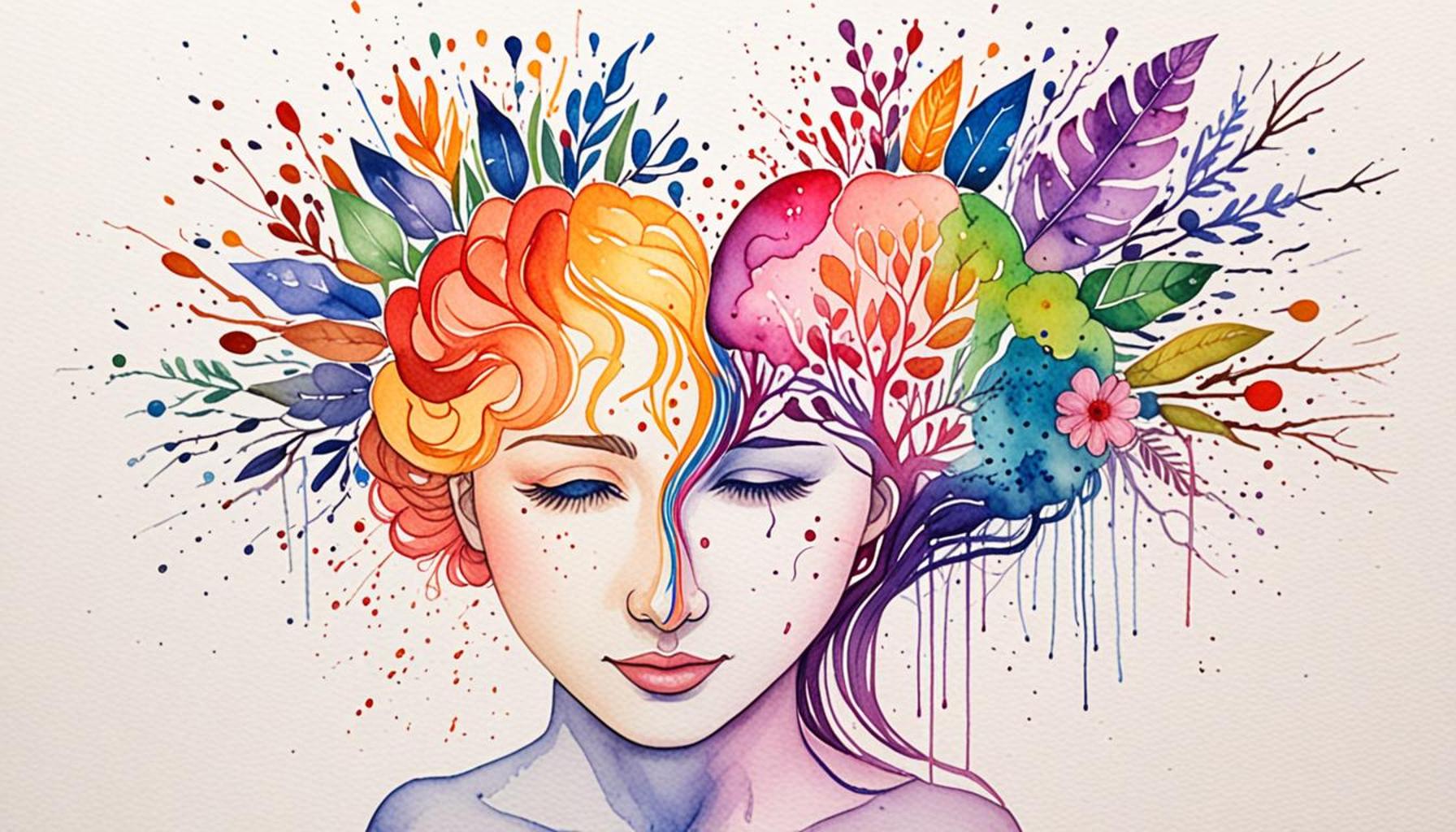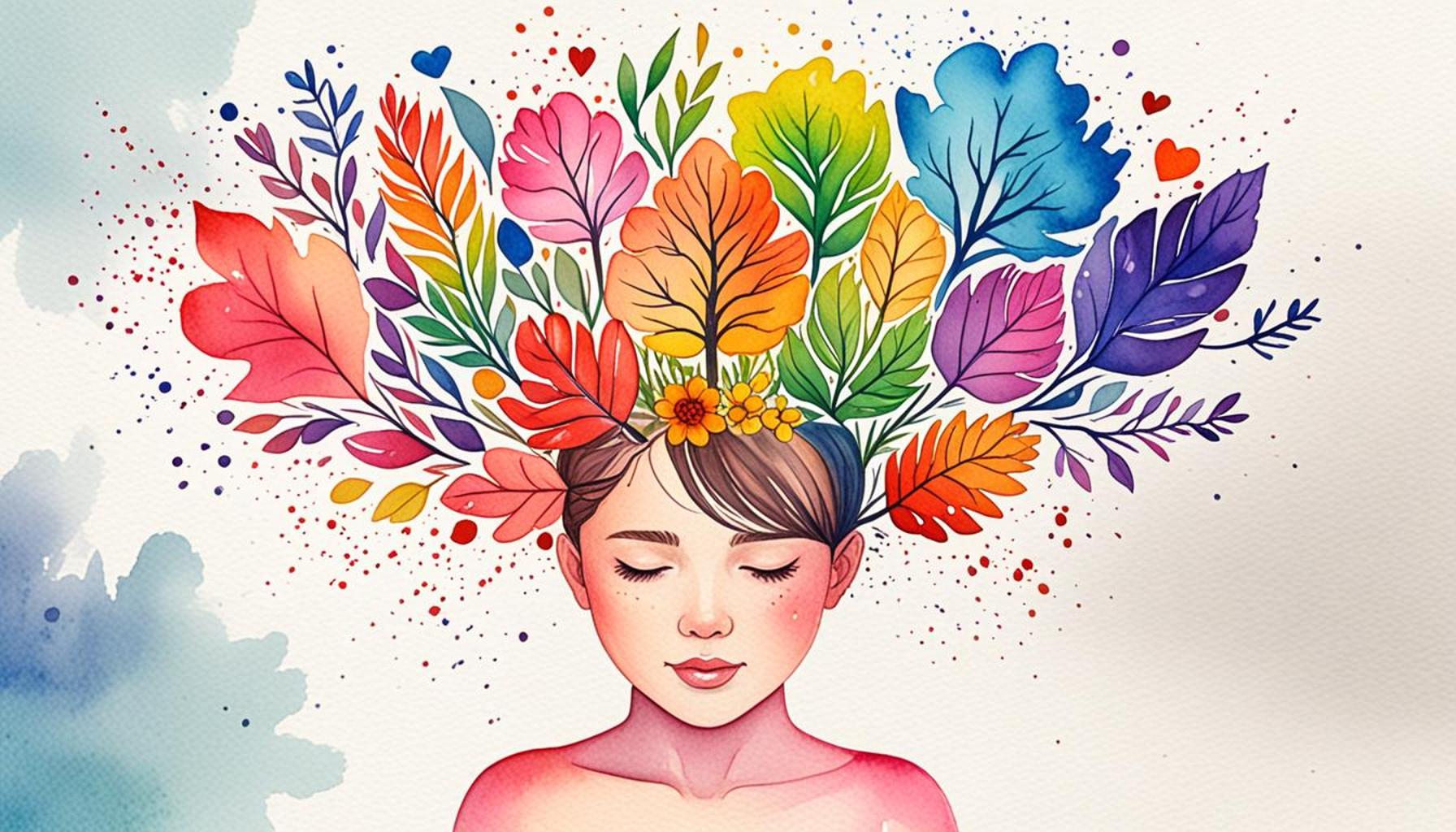Developing Emotional Resilience Through Self-Care and Self-Acceptance Practices

Understanding Emotional Resilience
Emotional resilience can be described as the ability to adjust to stress and adversity while maintaining a positive mental state. This concept is particularly relevant in Nigeria, where individuals face unique social, economic, and political challenges that can lead to emotional strain. Building emotional strength is crucial not only for personal well-being but also for fostering a supportive community. The journey towards enhancing emotional resilience includes a variety of strategies and practices that can be adapted to fit cultural contexts.
Self-Care Routines
Self-care routines encompass regular activities that promote both physical and mental health. In Nigeria, this could mean engaging in lively cultural practices such as dancing or participating in local sports. For instance, traditional dances are not only a form of exercise but also a way to connect with community and kin. Additionally, simple practices like taking daily walks in a nearby park or engaging in family gatherings can serve as refreshing breaks from the daily grind. Integrating forms of exercise that are culturally meaningful can make self-care more enjoyable and sustainable.
Mindfulness Practices
Mindfulness practices involve techniques that gain prominence as effective ways to enhance self-awareness and presence. Activities such as deep breathing, meditation, or journaling can be easily incorporated into one’s daily life. Consider the age-old tradition of storytelling among Nigerian communities; not only does it offer entertainment, but when individuals actively engage in recounting their stories, it can serve as a form of reflection that promotes mindfulness. By capturing thoughts on paper or discussing life experiences with friends, individuals may better navigate feelings and reduce stress.
Community Engagement
Community engagement is vital in promoting emotional health. Building supportive relationships with friends, family, and local organizations helps foster a sense of belonging. In Nigeria, participating in community events, vocalizing shared challenges, and offering support to one another creates a safety net that bolsters resilience. Such connections reinforce the belief that one is not alone in facing adversities. For example, local men’s or women’s groups often serve as platforms where individuals can share experiences and strategies on coping with life’s challenges.
Self-Acceptance Practices
Understanding the significance of self-acceptance is pivotal in fostering resilience. Embracing flaws, acknowledging that no one is perfect, can lead to personal growth. In the context of Nigeria, societal pressures may impose unrealistic expectations, but recognizing one’s individuality is essential. Cultivating gratitude by focusing on positive aspects of life can further solidify emotional strength. Reflecting on daily blessings, no matter how small, rekindles hope and optimism. Moreover, setting boundaries is crucial in protecting one’s emotional energy and personal space. In a bustling social environment, being selective about whom to engage with can safeguard one’s wellbeing and promote healthier interactions.

As we explore the intersections of self-care, acceptance, and resilience, we uncover valuable insights that are transformative. Equipping ourselves with various tools and practices empowers us to thrive despite life’s uncertainties. The journey towards emotional resilience is indeed personal, yet it can greatly enhance collective strength within communities, ensuring that we face challenges together.
RECOMMENDED: Check out this similar article
Nurturing Emotional Health: The Role of Self-Care and Self-Acceptance
Emotional resilience is not merely a trait one is born with; it is cultivated through intentional habits and practices. The journey towards enhancing this resilience starts with self-care and self-acceptance. In Nigeria, where societal expectations can sometimes overshadow individual needs, these practices can serve as powerful tools for personal growth and stability.
The Essence of Self-Care
Self-care is an indispensable part of emotional and mental wellbeing, encompassing a wide range of practices tailored to individual needs. Engaging in activities that nurture the body and mind can lead to significant improvements in overall health. For many Nigerians, self-care involves not only personal activities but also community-oriented practices. Some effective self-care routines might include:
- Participating in cultural festivals or local gatherings that build community spirit.
- Engaging in traditional sports or games that not only improve physical health but also foster local connections.
- Setting aside quiet time for personal reflection through prayer or meditation, integral to many cultures within Nigeria.
- Exploring nature by visiting nearby parks or rivers, which allows an escape from the hustle and bustle of everyday life.
These activities not only provide enjoyment but also contribute to reduced stress and enhanced emotional stability. Moreover, integrating culturally specific practices can make self-care more effective and relevant to Nigerian lifestyles.
The Power of Mindfulness
Mindfulness practices can significantly augment one’s journey toward emotional resilience. Techniques such as deep breathing, meditation, and even engaging in creative pursuits like art or music can cultivate a sense of presence and peace. For instance, the tradition of storytelling is deeply rooted in Nigerian culture. By practicing storytelling either through oral narratives or written forms, individuals can reflect on their life’s experiences, which can foster a mindset of resilience. This practice allows for critical engagement with one’s feelings, emotions, and the lessons learned from life’s challenges.
Boosting Self-Acceptance
In the quest for emotional resilience, embracing self-acceptance emerges as a foundational practice. Accepting one’s flaws and recognizing that perfection is an unrealistic expectation opens the door to personal growth. Individuals in Nigeria may often feel pressured by societal norms to conform to idealized images of success or behavior. However, by focusing on personal strengths and showing gratitude for life’s blessings, whether small or significant, one can shift their mindset towards a more positive outlook.
Additionally, fostering self-acceptance involves learning to set boundaries. In a culture marked by close-knit relationships and interdependence, it is essential to establish healthy limits. This involves prioritizing one’s emotional well-being by selectively engaging with those who uplift and support rather than drain emotional energy.
As individuals delve into the transformative process of self-care and self-acceptance, they not only pave the way for their emotional resilience but also contribute to the well-being of their communities. This duality of personal and collective strength offers hope and encouragement, reinforcing the idea that nurturing one’s emotional health is crucial in Nigeria, where external challenges abound.
Exploring Self-Care Strategies
In the journey of developing emotional resilience, self-care practices play a pivotal role. These strategies foster a deeper connection between mind and body, enhancing our ability to cope with life’s challenges. Engaging in regular self-care can mitigate feelings of anxiety and depression, allowing individuals to face adversity with a sense of preparedness and calm.
Self-care encompasses a broad range of activities, from simple daily rituals like taking a warm bath or practicing mindfulness meditation to more elaborate routines involving hobbies and social interactions. Each of these practices can significantly impact a person’s mental health, helping to create a buffer against stress. Cultivating a personalized self-care plan can empower individuals to prioritize their well-being, ultimately leading to greater emotional strength.
The Role of Self-Acceptance
Equally important in this process is self-acceptance, which encourages individuals to embrace their true selves, including their flaws and imperfections. By fostering an attitude of self-compassion, individuals can alleviate self-criticism and negative thoughts that often accompany challenging situations. This shift in mindset is essential for building emotional resilience, as it allows for a more profound understanding and acceptance of one’s feelings.
Practicing self-acceptance involves reframing negative beliefs and focusing on personal strengths. Engaging in positive affirmations, journaling about achievements, or seeking feedback from trusted loved ones can reinforce this practice. Acknowledging the unique journey of each individual contributes not only to personal growth but also facilitates collective healing as individuals share their experiences and challenges.
| Self-Care Practices | Mental Benefits |
|---|---|
| Mindfulness Meditation | Reduces anxiety and promotes inner peace. |
| Physical Exercise | Enhances mood through endorphin release. |
| Journaling | Facilitates reflection and emotional clarity. |
| Nature Walks | Connects with the environment, boosting mood. |
| Positive Affirmations | Strengthens self-esteem and challenges negativity. |
Implementing these self-care and self-acceptance practices daily can transform how one faces life’s obstacles, ultimately leading to a healthier, more resilient mindset. Each step taken towards emotional wellness is a step towards a fuller, more enriched life.
RECOMMENDED: Check out this similar article
Building Strong Foundations: The Interplay of Community and Self-Discovery
While self-care and self-acceptance are critical aspects of personal resilience, they are often enriched by communal support and shared experiences. In Nigeria, where community ties are deeply woven into the cultural fabric, the interplay between individual practices and collective engagement can amplify emotional resilience, fostering both healing and growth across generations.
The Influence of Community Support
Community plays a pivotal role in the emotional health of individuals. Engaging in group activities can create a strong support system that not only celebrates individual milestones but also provides comfort during challenging times. Many communities in Nigeria uphold traditions that promote unity, such as group prayers or communal feasts during festivals that emphasize togetherness and shared joy. These practices encourage members to come together, assisting in their individual journeys towards emotional fortitude.
Moreover, local support groups that focus on sharing experiences, such as coping with grief, trauma, or stress, are becoming increasingly popular. These gatherings increase awareness and understanding of emotional challenges, providing spaces for individuals to express their feelings, receive advice, and learn from the experiences of others. The therapeutic nature of shared stories cannot be underestimated; it fosters empathy and understanding, solidifying bonds that can help individuals navigate their emotional landscapes more effectively.
Practicing Self-Compassion
Regardless of the external support available, building emotional resilience is also an internal journey rooted in self-compassion. Self-compassion involves treating oneself with the same kindness and understanding that one would extend to a friend. This practice is essential, especially in a cultural context where criticism and comparison can negatively affect self-image.
Incorporating self-compassion into daily life can be as simple as acknowledging one’s feelings without harsh judgment. For instance, when faced with disappointment or failure, Nigerians can cultivate self-compassion by reflecting on their efforts rather than fixating on perceived shortcomings. Keeping a journal to document such reflections promotes personal growth and increases emotional awareness, creating a nurturing environment for both self-care and self-acceptance.
The Power of Affirmations
A transformative tool in the realm of self-acceptance and emotional resilience is the practice of affirmations. Positive affirmations can significantly alter an individual’s self-perception and emotional landscape. By repeating empowering statements, individuals can challenge negative thoughts and instill a sense of worthiness. In Nigeria, this practice has been embraced for its simplicity and profound impact, especially among young people navigating societal pressures.
Integrating affirmations into one’s morning routine or daily meditation can help reinforce a positive identity. Phrases like, “I am enough,” or “I embrace my uniqueness,” can serve as reminders of inherent worth. Social media platforms have also become avenues where individuals share their journeys through hashtags dedicated to self-love and acceptance, contributing to a larger movement that inspires many.
As emotional resilience continues to be a necessary foundation for thriving in a fast-paced world, understanding the synergetic relationship between self-care, self-acceptance, and community support becomes essential. The collective efforts of nurturing emotional health not only benefit individuals but also echo throughout the community, encouraging a culture of resilience that can withstand the ebbs and flows of life.
RECOMMENDED: Check out this similar article
Embracing a Holistic Approach to Resilience
In conclusion, developing emotional resilience is a multifaceted journey that intertwines self-care, self-acceptance, and the supportive embrace of community. The practices of nurturing oneself through self-compassion, engagement in collective activities, and positive affirmations create a robust framework for navigating life’s challenges. In Nigeria, where cultural ties deeply influence personal well-being, these elements take on added significance, merging individual growth with communal strength.
As individuals learn to honor their unique journeys and experiences, they ultimately foster a culture of empathy and understanding within their communities. The power of shared stories can dismantle stigma around emotional challenges and create safe spaces for healing and growth. Promoting emotional resilience thus becomes a collective endeavor, enabling communities to thrive in an interconnected fashion.
Moreover, as this article illustrates, the path toward resilience is not one of isolation but of connection—between the self and others. By integrating simple yet powerful practices into daily life, such as journaling or communal gatherings, individuals can cultivate a mindset that embraces positivity and self-love. Ultimately, the journey of emotional resilience is a profound one, offering insights that extend beyond personal healing and contributing to a broader movement that celebrates mental wellness.
As we continue to explore avenues for enhancing emotional health, the dialogue around self-care and self-acceptance should remain open and inclusive. It is this shared commitment to nurturing resilience that can empower future generations and help them face the ups and downs of life with confidence, grace, and unwavering support.


